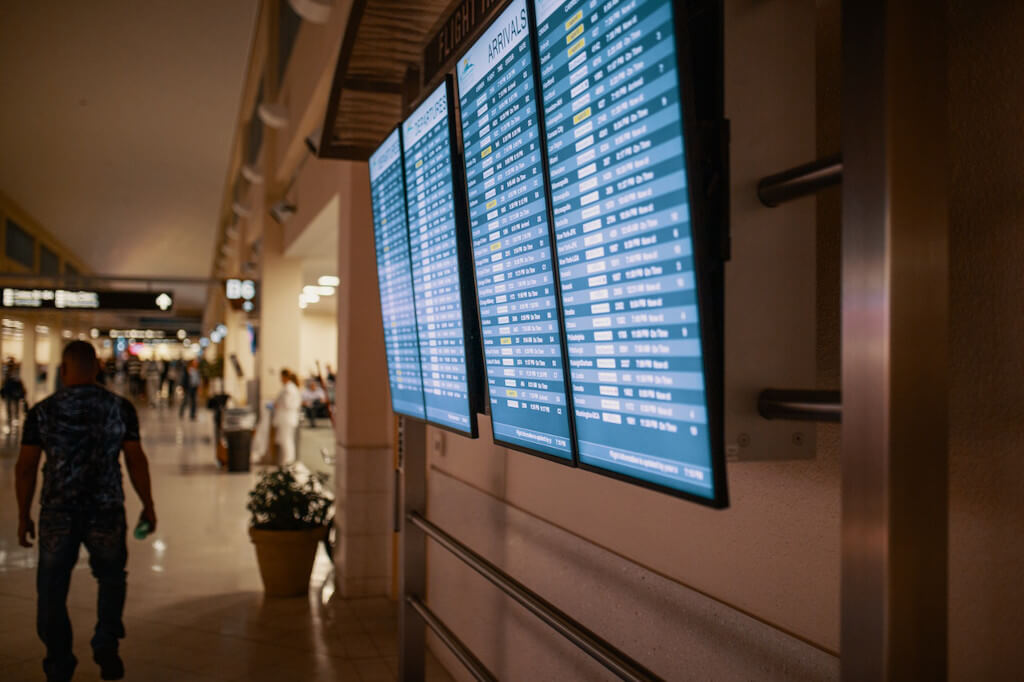South Africa, brace yourself! Our airports have become the landing pads for the future. Self-service check-out lanes in supermarkets have become the norm, and now they’re coming to airports near you. You read that correctly. Our new best friends on the road will be artificial intelligence (AI) and robots.
The bombshell announcement was just made by Airports Company South Africa (ACSA), and it’s sure to cause some jaws to drop. What’s the lingo? Digitalisation. The statement from ACSA has set the minds of techies and frequent flyers racing with speculation about how it might change the way we travel. The man leading the charge in this exciting transition, ACSA’s Chief Information Officer Mthokozisi Mncwabe, has let the cat out of the bag. He hinted at the use of AI and robotics to facilitate self-service options at all of ACSA’s airports.
Mncwabe stressed that improving the customer experience is a primary goal of these technical developments. “Robotics, dear folks, will soon be enhancing your airport experience,” he sarcastically said.
How so? Airports throughout the world are increasingly adopting the practice of employing high-tech solutions to facilitate the sale of goods and the serving of food and drink. Don’t be surprised if a robot saves the day the next time you’re in a rush to catch a flight but need a cup of coffee.
However, this is not all. ACSA is also interested in collaborating with Microsoft to improve the customer service they provide. The objective here is to consolidate several service portals into a single location. Mncwabe further, said, “Multiple services, such as booking a flight, a car, or a hotel, will be aggregated and accessed through a single platform and user interface.” Isn’t that practical?
This means that ACSA is working to improve the travel experience for its customers by making it more streamlined and convenient. Airport check-in, food service, customer service, and even the answering of frequently asked questions could all be radically altered by the advent of AI and robotics.
Even more convincing is Mncwabe’s statement that ACSA is working with Microsoft on this transition. They are considering not only internal processes but also external ones, such as communication with and satisfaction of their clientele. When it comes to cutting-edge technologies like cloud computing and artificial intelligence, Microsoft is a household name. This partnership has the potential to drastically improve service at South African airports.
The idea of a unified experience for all users is intriguing. It’s like having a personal travel agent in the palm of your hand. It’s a hub that brings together several services through a unified interface. If this were the case, it would be possible to do so much more than just buy a trip or hotel stay online. That’s the pinnacle of ease of use!
Let’s picture this for a second. Robotic greeters who can help you find your way to the right check-in counter can be waiting for you as soon as you arrive at the airport. Using artificial intelligence, self-service kiosks might expeditiously issue boarding passes, create luggage tags and check passengers in. You could order food from a digital menu and have it brought to you by a robot waiter as you wait for your trip.
Introducing such technologies into our airports would improve their functionality and make them more welcoming to passengers. It’s a huge step forward and shows how far South Africa has come in terms of adopting cutting-edge technology.
The adoption of this new technology by all South African airports is a significant step towards meeting international standards, further solidifying the country’s position as a technological leader. One thing is certain as we anticipate these exciting developments: our time spent at airports is about to get a technological makeover.
About The Author:
Sipho Khumalo is Africa Nova’s lead science and technology journalist. He has a background in computer science and a passion for tech start-ups and the latest tech trends across Africa. Sipho has previously written for renowned tech journals and uses his expertise to analyze and report on Africa’s tech scene.




